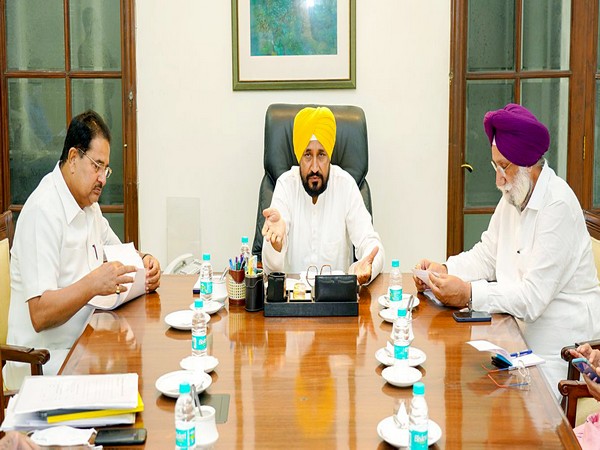Punjab Cabinet approves setting up of design, quality-control monitoring, evaluation wing in Soil and Water Conservation Dept
In a bid to ensure precise planning, designing, estimation besides transparent and accountable implementation of public works, the Punjab Cabinet on Saturday approved setting up of the design, quality control monitoring and evaluation wing in the Soil and Water Conservation Department.

- Country:
- India
In a bid to ensure precise planning, designing, estimation besides transparent and accountable implementation of public works, the Punjab Cabinet on Saturday approved setting up of the design, quality control monitoring and evaluation wing in the Soil and Water Conservation Department. A decision to this effect was taken during a Cabinet meeting chaired by Punjab Chief Minister Charanjit Singh Channi here at Punjab Bhawan this evening.
According to a spokesperson of the Chief Minister's Office, the dedicated Designing, Monitoring, Quality Control and Evaluation wing is being set up at the headquarters of the Soil and Water Conservation Department. "The creation of this wing would not entail any additional government expenditure but help in saving public money due to the implementation of proper planning, designing and estimation besides enhancing accountability among departmental officers/officials," the spokesperson said.
"It would also help the farmer community especially small and marginal farmers which are often devoid of government benefits as due to copybook planning and designing no farmer would feel left out of government projects," they added. Notably, the Soil and Water Conservation department is implementing various government programmes for laying underground pipelines, drip and sprinkler systems for increasing irrigation water use efficiency besides construction of water harvesting structures, roof top rain water harvesting structures, check dams etc. for augmenting ground water recharge.
As per the CMO, all these works require proper designing, estimation so that government funds are expended in an efficient manner and the benefit of these projects are achieved in an optimal manner. "The department at present does not have a dedicated design and quality control wing unlike other state and central government departments implementing public works," it added.
The Cabinet has also approved the setting up of a Micro Irrigation (MI)-Special Purpose Vehicle (SPV) in the Soil and Water Conservation Department for the promotion of intelligent irrigation systems in the state. To achieve this objective in the larger public interest, the spokesperson said the process requires organizational changes within the department and a person having requisite qualifications and experience in the micro irrigation field shall be deputed by way of nomination/additional charge in the Soil and Water Conservation Department, who shall head this SPV and set up the requisite organizational structure of this dedicated wing for implementation of micro irrigation programme in the state.
Pertinently, Punjab has been implementing Micro Irrigation programme for the past over 15 years and despite providing 80-90 per cent subsidy to the farmers for these systems, adoption of these systems have been far from satisfactory, as only about 1.2 per cent area has been covered under these irrigation systems. Along with these, the government gave a "go ahead" for up-gradation of Sub-Tehsil Tanda in Hoshiarpur district and Adampur in Jalandhar district as Tehsils/Sub-Divisions.
"The newly upgraded Tehsil/Sub-Division Tanda would comprise of five Kanungo Circle, 47 Patwar Circles and 133 villages whereas Adampur would consist of six Kanungo Circles, 60 Patwar circles and 161 villages," the CMO informed. In order to bring uniformity, the Cabinet also approved Punjab Dental Education (Group-A) Service (Amendment) Rules, 2021 according to the norms of Dental Council of India, New Delhi.
This decision, as per the CMO, would be instrumental in filling the vacant post of medical faculty in Government Dental Colleges across the state for imparting quality education to the students besides providing the best dental treatment to the patients. Keeping in view the possibility of a third wave of the COVID-19, the Cabinet also decided to retain and extend the services of manpower already engaged on outsource basis in Government Medical Colleges of Patiala and Amritsar till March 31, 2022.
With this decision, the Cabinet approved extension to the 789 posts of Isolation Ward and 7 VRDL from October 1, 2021 to March 31, 2022. However, this move would help the state government to tackle emergent situation arising out of any eventuality and lessen the burden on the healthcare facilities. (ANI)
(This story has not been edited by Devdiscourse staff and is auto-generated from a syndicated feed.)










